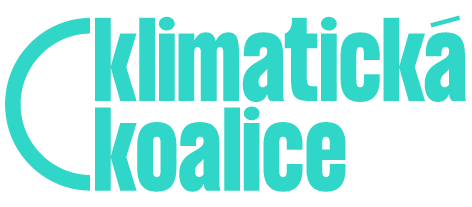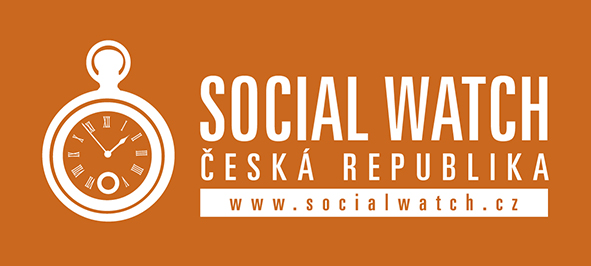Příspěvěk přednesený na konferenci Global Crossroads: The Role and Perspectives of Civil Society Organisations in Development Cooperation, která se konala v listopadu 2010 v Nikaragui
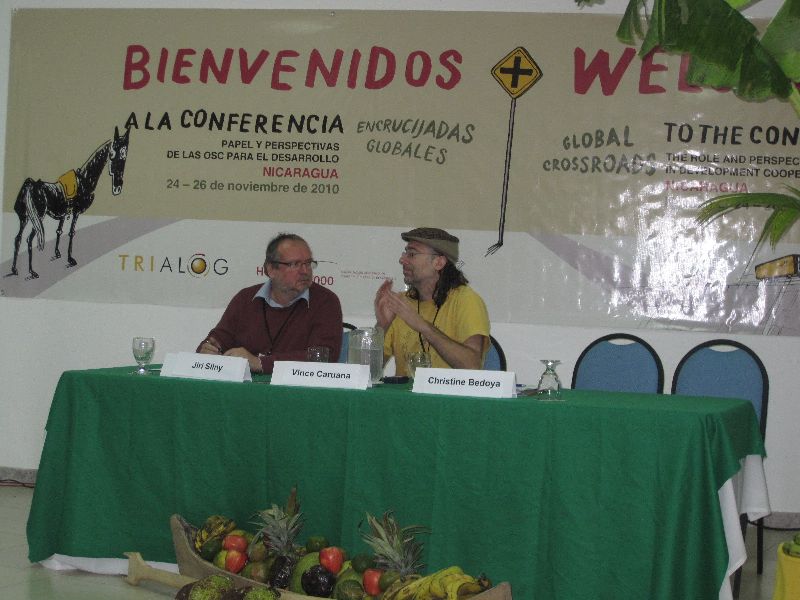
Please let me start with just reminding you of some important data:
200 years ago the Latin American countries started their way to independency and democracy.
50 years ago the process of decolonisation reached Africa.
40 years ago the rich countries promised to support the poor ones by 0,7 % of their GDP per year.
21 ago the former socialist countries in Europe changed to gain more democracy and development.
10 years ago the governments declared their will to half the main indicators of poverty till 2015.
And still more than a billion of people have not enough to eat and the differences between rich and poor are growing.
Two years ago, in May 2008 the previous conference on the role of CSOs in development cooperation has been organised in Prague. We asked “Are we on the right track?” and looked for the paradigm change in the development co‐operation. It was the first conference with the substantial participation from the so called new member states (NMS) of the European Union where the development NGOs asked basic questions: what do we mean when we speak about development? What kind of development do we promote? What should change in the North to enable to the South to develop?
We didn´t fully agree on the character of the necessary changes. Will be more efforts on the side of so called developing countries enough? Will be the enhancement of development co‐operation on the side of the rich countries enough? Or do we need systemic changes?
Some of us felt strongly there is no way further if we just go on running projects, struggle hard for money, compete against other NGOs and observe in the same time that there is lack of commitment on the side of the rich governments to really fight for MDGs or to increase the share of GDP for development. The efforts to really change structural causes of poverty like usury loans, unjust trade rules, property rights ruling over lives of people are missing nearly fully. The scandalous ignorance of the climate justice is just another side of the same coin.
What did change since 2008? We experienced a big financial crisis accompanied by heavy impacts on the lives of poor people globally. We have see how the gambling capital in shortest time destroyed economies and efforts of long years of development. We have seen how the speculation with crops led to starvation, and fights for resources. We see multinational corporations and rich countries grabbing land and fishing the seas empty. The achievements in eradication of poverty have been mostly eradicated.
The inequality rises between the rich and poor globally and in most of the nations. We see that destruction of livelihoods is going on. Hurricanes, earthquakes, desertification, all the natural and man made catastrophes are especially disastrous in the countries with a low level of prevention.
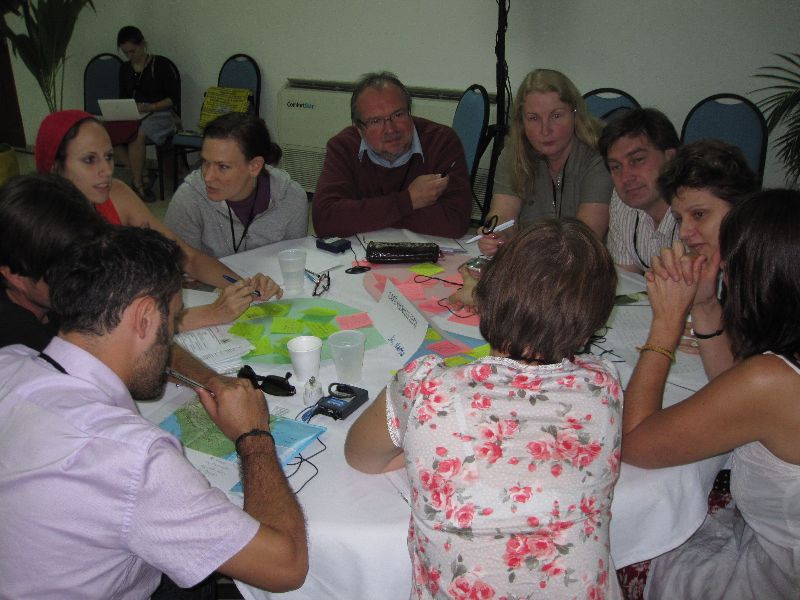
Do we see at least now any stronger efforts on the side of the rich governments to face the old and new challenges? No, we don´t. We hear he politicians insisting, that what is good for business must be good for poor people as well. They say the crisis is over, let´s do business as usual , consumption as usual, militarisation as usual. There are no substantial changes of casino capitalism yet. In comparison with nine trillion dollars for bailing out irresponsible private banks and corporations with public money are the hundred billion dollars of development aid yearly just a bad joke. Many states even cut the development budgets, some of the rich states are themselves facing huge financial problems. Some of the former socialist states lose the sovereignty gained twenty years ago because of debts, and are effectively ruled by International Monetary Fund harder than once by the Soviet Union.
The improvements of the lives of people exist in effect only there, where developing countries have been able to protect themselves from impacts of crisis and mobilise own resources. Some of such countries are in Latin America, some like Brazil have been able to lower the number of poor even in the year of crisis 2009. But as well China did. The so called developed countries do the opposite and by cutting social expenditures they increase numbers of their poor.
Well, do we see more resolute CSOs advocating loudly for the change and challenging empty promises of politicians of rich countries? Oh no, not really. Instead of this there are more efforts in adapting to the worsening conditions. The NGOs accept the business‐like effectiveness discourse and try to show that they are more efficient than private providers of development co‐operation. It is obvious they are, but it doesn’t help really in the political fight on the character of future development. Besides, the tactics not to provoke by too much criticism in order not to endanger the own eligibility for project funding is leading only to a weaker position.
The development co‐operation is important, can help, can give an inspiration but has no chance to really solve the problem of injustice and poverty. A simple reckoning helps. 100 billions of US dollars a year is an average amount of money sponsored for development co‐operation by rich countries. Only for payments of their debts pay poor countries to the rich countries five times more a year. If we add the unfair trade conditions, the speculations, the corruption, the so called property rights and so on, the net transfers from the poor to the rich are enormous, comparable with the time of straight colonialism.
There is no way how to reach for everybody on the Earth the way and level of consumption of material goods reached by the wealthiest. Long before approaching such target the resources run out and Earth becomes uninhabitable.
What we maybe can agree: the economically, socially and environmentally sustainable development looks very different than what we have now and that is why we are facing the biggest challenge ever. And civil society is the element where the change can be born.




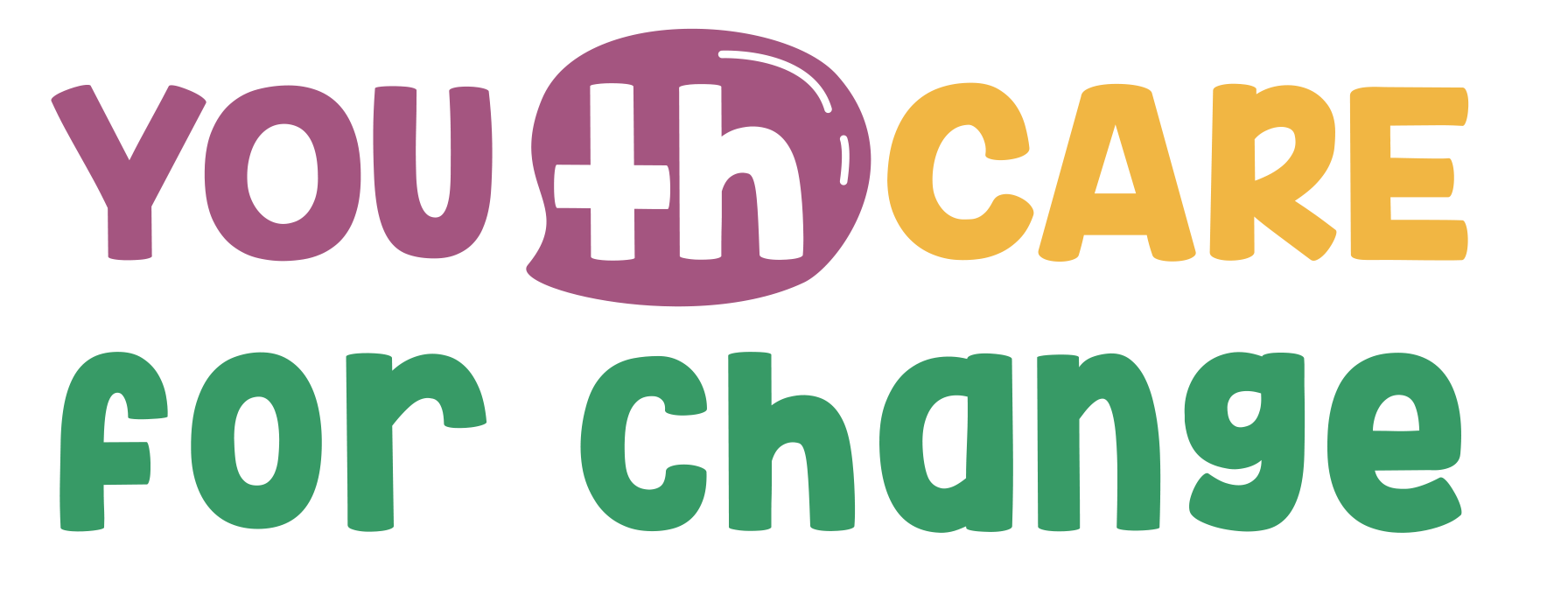
.png)
.jpg)
